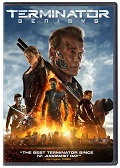Critics and commentators at the Economist, the Financial Times and McKinsey select the best books of the year for 2015. Not surprisingly, there is a significant overlap. Let’s take a look at what the experts are recommending now.
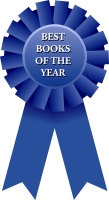
BUSINESS
Unfinished Business: Women Men Work Family
By Anne-Marie Slaughter and Karen White.
Accomplished academic at Princeton and key foreign policymaker for the Obama Administration describes her vision for what true equality between men and women really means.
The Economist Book of the Year 2015
Financial Times Book of the Year 2015
Finalist: FT and McKinsey Book of the Year Award 2015
How Music Got Free: The End of an Industry, the Turn of the Century, and the Patient Zero of Piracy
By Stephen Witt.
The secret history of digital music piracy, from the German engineers who invented the MP3, to a N.C. CD manufacturing plant that leaked 2000 recorded albums over 10 years, and then into dark recesses of the Internet where music is available for free.
Financial Times Book of the Year 2015
Finalist: FT and McKinsey Book of the Year Award 2015
Elon Musk: Tesla, Space X, and the Quest for a Fantastic Future
By Ashlee Vance.
A portrait of daring, charismatic and confrontational innovator Elon Musk, his life and career, his successes and failures, beginning with his difficult childhood in South Africa.
FT and McKinsey Book of the Year Award 2015 nominee
Digital Gold: Bitcoin and the Inside Story of the Misfits and Millionaires Trying to Reinvent Money
By Nathaniel Popper.
N.Y. Times reporter presents the volatile evolution of an emerging payment system that facilitates innovative transactions and reduces costs to merchants while assuring privacy to users.
Financial Times Book of the Year 2015
Finalist: FT and McKinsey Book of the Year Award 2015
Leadership BS: Fixing Workplaces and Careers One Truth at a Time
By Jeffrey Pfeffer.
Stanford Business School professor uses his research to update the accepted wisdom about leadership, concluding that authenticity, honesty and humility are overrated.
FT and McKinsey Book of the Year Award 2015 nominee
Road to Character
By David Brooks.
Political writer illustrates the lives of 8 well-known people who have been down the difficult “road to character” and shows how character building works in the real world.
The Economist Book of the Year 2015
Foolproof: Why Safety Can Be Dangerous and How Danger Makes Us Safe
By Greg Ip.
Wall Street Journal commentator explains that the urge to avoid risk often leads to danger — for example, preventing small forest fires creates the opportunity for an inferno — as a lesson for banking regulators trying to prevent a financial crash.
Financial Times Book of the Year 2015
Silo Effect: The Peril of Expertise and the Promise of Breaking Down Barriers
By Gillian Tett.
Silos are ubiquitous in business, government and universities. A financial journalist explains why organizations fragment into silos and how functional departments can be better integrated to foster innovation.
Financial Times Book of the Year 2015
ECONOMICS
Misbehaving: The Making of Behavioral Economics
By Richard Thaler.
An entertaining view of how economists are deviating from the traditional standard of rationality to study real human behaviors, showing how miscalculations affect decision making and how incentives affect markets.
The Economist Book of the Year 2015
Financial Times Book of the Year 2015
Finalist: FT and McKinsey Book of the Year Award 2015
Other People’s Money: The Real Business of Finance
By John Kay.
An economist explains how the finance sector should work, managing other people’s money for the benefit of businesses and households, instead of enriching financial executives in powerful banks.
The Economist Book of the Year 2015
Financial Times Book of the Year 2015
Climate Shock: The Economic Consequences of a Hotter Planet
By Gernot Wagner and Martin Weitzman.
Two economists discuss the risks of an extreme climate event and its global repercussions, unless action is taken now, as they identify carbon pricing as the economic solution to the production of industrial pollution.
Financial Times Book of the Year 2015
FT and McKinsey Book of the Year Award 2015 nominee
Phishing for Phools: The Economics of Manipulation and Deception
By George Akerlof and Robert Shiller.
Two Nobel Prize-winning economists argue that markets are not always the benign “invisible hand,” but are rife with deception as sellers exploit buyers’ psychological weaknesses.
FT and McKinsey Book of the Year Award 2015 nominee
Circus Maximus: The Economic Gamble Behind Hosting the Olympics and the World Cup
By Andrew Zimbalist.
A sports economist explains the politics behind hosting the Olympic Games and the World Cup, arguing that the short-term and long-run economic impacts are negative for the hosting cities, where only the wealthy profit.
The Economist Book of the Year 2015
Hall of Mirrors: The Great Depression, The Great Recession, and the Uses – and Misuses – of History
By Barry Eichengreen.
An economist compares the two financial crises of the 1930’s and 2008-onward and analyzes the actions that policymakers undertook with the positive and negative results.
FT and McKinsey Book of the Year Award 2015 nominee
Inequality: What Can Be Done?
By Anthony Atkinson.
An economist proposes 15 new solutions to alleviate economic inequality, such as a minimum inheritance for all and a global tax on wealth.
The Economist Book of the Year 2015
Financial Times Book of the Year 2015
TECHNOLOGY
Superforecasting: The Art and Science of Prediction
By Philip Tetlock and Dan Gardner.
Forecasting seems like an art, but can be learned. Experts with real foresight gather evidence from a variety of sources, understand probabilities, work in teams and change course when new data emerges.
The Economist Book of the Year 2015
FT and McKinsey Business Book of the Year Award nominee
Rise of the Robots: Technology and the Threat of a Jobless Future
By Martin Ford.
A Silicon Valley entrepreneur argues that as technology continues to accelerate, machines are beginning to take care of themselves, making human jobs obsolete. Jobs are evaporating, while education and health care costs rise rapidly, leading to massive unemployment, income inequality and the implosion of the consumer economy.
Financial Times Book of the Year 2015
Winner of the FT and McKinsey Business Book of the Year Award 2015
Losing the Signal: The Untold Story Behind the Extraordinary Rise and Spectacular Fall of Blackberry
By Jacquie McNish and Sean Silcoff.
An insider’s account of BlackBerry, which in 2009 ranked as the world’s fastest growing company with half the smartphone market, but was then crippled by internal management feuds and ruthless competition from Apple and Google.
Financial Times Book of the Year 2015
Finalist: FT and McKinsey Book of the Year Award 2015
The Powerhouse: Inside the Invention of a Battery to Save the World
By Steve LeVine.
Energy journalist provides a fast-paced account of the global race to develop a lithium-ion super-battery that will transform the world’s industries, geopolitics and climate.
FT and McKinsey Business Book of the Year Award nominee
Humans Need Not Apply: A Guide to Wealth and Work in the Age of Artificial Intelligence
By Jerry Kaplan.
Computing pioneer discusses advances in machine learning, robotics and perception powering systems, creating technologies that exceed human capabilities, promising a future with escalating comfort and wealth for some, but persistent unemployment for many.
The Economist Book of the Year 2015
© Meg Trauner & Ford Library – Fuqua School of Business.
All rights reserved.
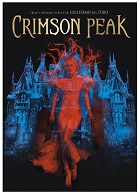
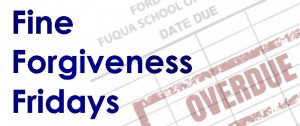
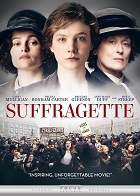
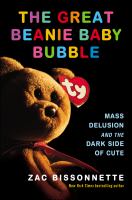 Bissonnette, Zac.
Bissonnette, Zac. 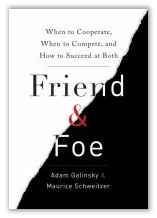 Galinsky, Adam D. and Maurice Schweitzer.
Galinsky, Adam D. and Maurice Schweitzer. 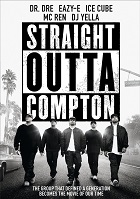

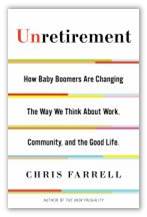 Farrell, Chris.
Farrell, Chris. 